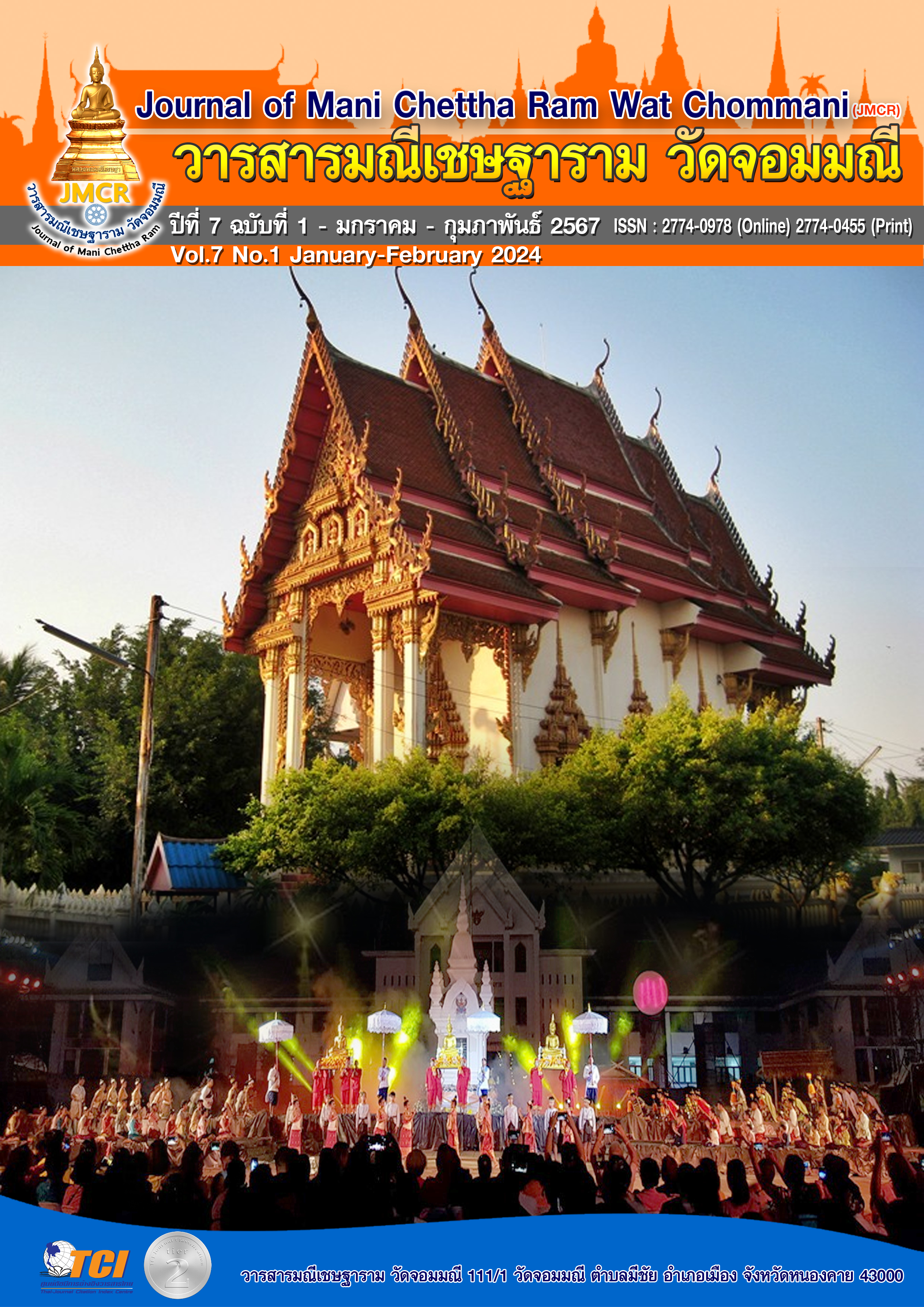MOTIVATION FOR MONKS TO ENTER HIGHER EDUCATION IN MONASTIC UNIVERSITIES
Keywords:
Motivation, Further Education, Higher Education, Monastic University, MonksAbstract
Education is considered one of the important factors in giving people the opportunity to have a good quality of life. For higher education in the Sangha University of Sangha This is a person who has many missions every day. As a result, there is time to consider in order to enter higher education. Therefore, higher education in a monastic university for monks must rely on motivation to enter further education. That's good.
This academic article the objective is to study the motivation of monks to pursue higher education in a monastic university. Along with presenting concepts, methods, and guidelines for motivating monks to enter higher education in monastic universities in various forms. Through the perspective of concepts and theories about motivation. Concepts and theories regarding motivation for further study and ideas about the education of monks For monks who are about to decide to pursue higher education in a monastic university. It can be used to strengthen motivation to pursue higher education in a monastic university that is appropriate to the rapidly changing situation in the present era. As a result, the monks have perseverance. Have patience to overcome obstacles and in order to achieve success according to the goals that they have set.
The study found that continuing higher education in a monastic university for monks requires good motivation to continue their education, that is, achievement motivation. Because the motivation to strive for achievement will directly affect and influence the monks to be determined and not give up in the face of any obstacles. in order to achieve success according to the set goals.
References
กุทัย หาระพันธ์. (2555). การใช้สารสนเทศของพระนักศึกษาระดับปริญญาตรีมหาวิทยาลัยสงฆ์ในภาคตะวันออกเฉียงเหนือตอนบน. ใน วิทยานิพนธ์ศิลปะศาสตร มหาบัณฑิต แขนงวิชาสารสนเทศศาสตร์ สาขาวิชาศิลปะศาสตร์.มหาวิทยาลัยสุโขทัยธรรมาธิราช.
ธวัชชัย แก้วสิงห์. (2560). อัตลักษณ์โรงเรียนพระปริยัติธรรมแผนกสามัญศึกษาของคณะสงฆ์จีนนิกาย. วิทยานิพนธ์ปรัชญาดุษฎีบัณฑิต สาขาวิชาการบริหารการศึกษา แบบ 2.1 ปรัชญาดุษฎีบัณฑิต ภาควิชาการบริหารการศึกษา. มหาวิทยาลัยศิลปากร.
พระสรวิชญ์ อภิปญฺโญ (ดวงชัย), (2558). การอุดมศึกษา : การศึกษาเพื่อประชาชน. เรียกใช้เมื่อ 15 ธันวาคม 2566, จาก https://www.mcu.ac.th/article/detail/273.
พระอาโซ เสี่ยกัง (มาเยอะ). (2562). รูปแบบแรงจูงใจในการศึกษาต่อสำหรับเยาวชนในโรงเรียนพระปริยัติธรรมแผนกสามัญศึกษา. วารสารมหาจุฬานาครทรรศน์, 6(1), 180-196.
Somdet Phra Buddhaghosacariya (P. A. Payutto). (2564). สถาบันสงฆ์ในสังคมไทย. เรียกใช้เมื่อ 15 ธันวาคม 2566, จาก https://www.watnyanaves.net/en/book-reading/424/2.
อุทัย มณี (เปรียญ). (2562). ธุระของ “พระภิกษุในพระพุทธศาสนา”. เรียกใช้เมื่อ 15 ธันวาคม 2566, จาก https://www.posttoday.com/lifestyle/602096.
อำไพวรรณ ทัพเป็นไทย. (2556). แรงจูงใจในการเขาศึกษาต่อของนักศึกษาคณะศิลปะศาสตรมหาวิทยาลัยเทคโนโลยีราชมงคลสุวรรณภูมิ. งานวิจัยคณะศิลปะศาสตร์ สาขาสังคมศาสตร์และมนุษย์ศาสตร์ มหาวิทยาลัยเทคโนโลยีราชมงคลสุวรรณภูมิ.
สุวัฒน์ วัฒนวงศ์. (2544). จิตวิทยาเพื่อการฝึกอบรมผู้ใหญ่. กรุงเทพมหานคร: ธีระป้อมวรรณกรรม.
Herzberg, F. (1959). Federick; Mausner, Bernard; and Synderman, Block the Motivation to Work. New York: John Willey.
McClelland, D.C. (1985). Human motivation. Chicago: Scott, Foresman.
National Institute for Adult Education (NIAE). (1971). The Year Book of Adult Education. London: Author. New York: MeGraw – Hill.




